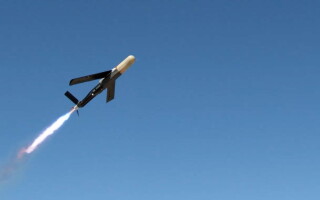CRADA: Improving safety, performance of lithium-ion batteries
NewsFebruary 27, 2018
CRANE, Ind. Purdue University and the Naval Surface Warfare Center, Crane Division (NSWC Crane) signed a new Cooperative Research and Development Agreement (CRADA), which aims to align modeling efforts at Purdue with testing capabilities at NSWC Crane to achieve the common goal of improving the safety and performance of lithium-ion batteries.
“I see this as a great opportunity to combine complementary expertise to deliver a safer, lighter-weight energy storage capability with a longer-life cycle to the warfighter of the future,” says Kyle Crompton, NSWC Crane’s Principal Investigator. “Purdue has significant experience with electrochemical, thermal and fluid dynamics modeling related to lithium-ion batteries. NSWC Crane’s testing capabilities can be utilized to verify safer designs while our perspective on warfighter needs can help to guide modeling and design efforts.”
Improving the safety and performance of lithium-ion batteries has been an on-going area of research for several years. Substantial focus has been placed on material development for electrode materials, but much less has targeted advanced designs, thermal runaway detection and mitigation, and theoretical understanding of internal and external processes of the battery.
"We are excited to engage with NSWC Crane through this newly formed CRADA. Our collaborative research activities will leverage the unique and complementary expertise of both institutions in energy storage systems,” Dr. Jason Ostanek (Purdue’s School of Engineering Technology) and Dr. Partha P. Mukherjee (Purdue’s School of Mechanical Engineering) said in a joint statement. “This partnership creates an opportunity for Purdue students and researchers to contribute to the mission critical stewardship of NSWC Crane."






